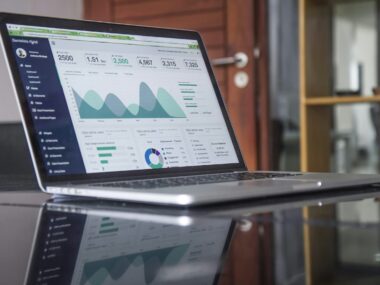Student Loans Nigeria: How to Apply as Nigerian students
Introduction
In Nigeria, the cost of higher education has been steadily rising, making it increasingly difficult for many students to pursue their academic dreams without financial assistance. Student Loans in Nigeria. From tuition fees to accommodation and living expenses, the financial burden can be overwhelming, particularly for families with modest incomes. This has led to a growing demand for student loans as a viable means of bridging the affordability gap. Best Personal Finance Apps USA
Student loans in Nigeria serve as a critical tool for enabling access to tertiary education, ensuring that capable students are not denied opportunities simply because of financial constraints. Unlike scholarships, which are highly competitive and limited, student loans provide a broader base of financial support, albeit with repayment obligations. By understanding the options available and managing loans responsibly, students can focus on their studies without undue stress about finances. Personal Loans in the UK
Furthermore, in today’s economy, borrowing responsibly is an essential life skill. Taking a student loan teaches young adults about budgeting, financial planning, and the consequences of borrowing. When managed effectively, student loans can be an investment in a brighter future, enabling graduates to pursue meaningful careers and contribute positively to society.
What Are Student Loans?
Student loans are financial instruments designed to help students cover the costs of their education. They can come from government agencies, commercial banks, microfinance institutions, or private lenders. In Nigeria, student loans are generally structured to cover tuition, accommodation, books, and sometimes living expenses, allowing students to focus on their studies rather than worrying about immediate financial constraints. Personal Loans for Bad Credit in Canada
Legally, student loans are considered debts, meaning borrowers are obligated to repay the amount borrowed plus any accrued interest. Interest rates and repayment schedules vary depending on the lender and the type of loan. Government-backed loans tend to offer lower interest rates and more flexible repayment terms, whereas private loans may come with higher interest but faster processing times. Small Business Loans in USA
Student loans also serve social and economic purposes. They promote access to education, help reduce educational inequality, and foster economic mobility. In a country like Nigeria, where many families struggle to fund higher education, these loans are critical tools in ensuring that every capable student can attend university, polytechnic, or college without undue financial hardship.
How Do Student Loans Work in Nigeria?
Understanding how student loans operate in Nigeria is key to maximizing their benefits and avoiding pitfalls. Generally, the process starts with identifying a suitable lender, which could be a government agency or a bank offering educational loans. Eligible students then submit applications with the required documentation, such as admission letters, identification, and guarantor details. Best Home Insurance Providers in the UK
Once approved, funds are disbursed either directly to the student’s bank account or paid straight to the institution for tuition and accommodation fees. Disbursement schedules may vary: some loans release the full amount upfront, while others pay in installments aligned with the academic calendar.
Repayment typically begins after graduation, although some loans offer grace periods of six months to a year. Government loans, like those provided by the Nigerian Students Loan Board (NSLB), generally feature lower interest rates and longer repayment periods. Private loans may require repayment sooner and at higher interest rates, which emphasizes the importance of careful planning. Low Interest Personal Loans Canada
Additionally, student loans may come with specific conditions, such as mandatory course completion or regular academic performance checks. Failure to meet these conditions could lead to penalties or accelerated repayment demands. Students must carefully read the terms and conditions before committing to ensure that they understand the obligations and benefits involved.
How Much Do Student Loans Cost?
The cost of student loans in Nigeria varies depending on the lender and the type of loan. Government loans often have interest rates between 5% and 9% per annum, while private loans can range from 12% to 20%. Processing fees may also apply, typically between 1% and 3% of the loan amount. Student Loans in the UK
For example, a student borrowing ₦500,000 from a government loan program may pay approximately ₦25,000 in interest per year at a 5% rate. In contrast, a private bank loan at 15% interest could cost ₦75,000 annually, significantly increasing the total repayment burden.
Repayment schedules usually span 5–10 years, with monthly installments calculated based on the principal plus accrued interest. Borrowers must also factor in inflation and currency fluctuations, which may affect the real value of repayments over time. Understanding these costs upfront allows students to plan effectively and avoid defaulting on their obligations. Best Homeowners Insurance Providers
Types of Student Loans in Nigeria
Student loans in Nigeria can be categorized into several types, each with unique features and eligibility criteria:
-
Government-Backed Loans – Offered by agencies like NSLB, BOI, and BOA, these loans provide low-interest rates and flexible repayment terms. They are generally limited to Nigerian citizens and require proof of admission into a recognized institution.
-
Commercial Bank Loans – Banks like Zenith Bank, GTBank, and First Bank offer education loans to students, often requiring collateral or guarantors. Interest rates are higher than government loans but processing is faster and more flexible. Best Personal Finance Software for Families
-
Microfinance Loans – Some microfinance institutions provide small-scale loans to cover tuition or living expenses, targeting students from low-income families. These loans usually have modest interest rates and shorter repayment periods.
-
Private Scholarships with Loan Components – Certain scholarships function as loans if the student fails to meet academic requirements or graduation criteria. These hybrid models incentivize academic performance while providing financial support.
Each loan type comes with trade-offs between cost, accessibility, and repayment flexibility. Students must carefully assess their needs, eligibility, and financial capacity before selecting a loan.
Top Providers of Student Loans in Nigeria
-
Bank of Industry (BOI) – Offers low-interest education loans with flexible repayment periods. Primarily targets students in technical and vocational programs.
-
Bank of Agriculture (BOA) – Provides loans for students in agriculture-related fields, combining financial support with capacity-building programs.
-
Nigerian Students Loan Board (NSLB) – The primary government agency for student loans, offering low-interest loans to undergraduate and postgraduate students.
-
Zenith Bank – Offers education loans to students with guarantors, emphasizing timely disbursement and personalized repayment plans. YNAB vs Mint vs EveryDollar
-
GTBank – Provides quick-access student loans with competitive interest rates and flexible repayment schedules.
-
First Bank of Nigeria – Offers both student and parent-backed loans, making it easier for families to pool resources for higher education.
These providers differ in eligibility criteria, interest rates, and repayment conditions, so students must compare options carefully before applying.
What’s Typically Covered by Student Loans?
Student loans in Nigeria usually cover:
-
Tuition and school fees
-
Accommodation and hostel fees
-
Books, stationery, and study materials. Private Health Insurance Comparison
-
Transportation and commuting costs
-
Living expenses for students studying away from home
Some loan programs also allow for additional allowances, such as laptop purchases or special course fees. Understanding the scope of coverage helps students budget effectively and avoid unnecessary borrowing.
What’s Typically Not Covered by Student Loans?
Most student loans do not cover:
-
Lifestyle and entertainment expenses
-
Personal travel unrelated to education. Best Stock Trading Platforms
-
Penalties or fines imposed by the school
-
Optional courses not included in the program
-
Costs incurred due to academic failure or course repetition
Borrowers should plan for these extra costs separately to avoid financial strain during their studies.
Benefits of Student Loans
Student loans offer numerous advantages:
-
Access to Education – They make higher education affordable for students from all economic backgrounds.
-
Flexibility – Various repayment schedules and interest rates allow borrowers to select what suits them best. Cheapest Car Insurance Companies
-
Credit Building – Responsible repayment establishes credit history, which can help with future financial transactions.
-
Financial Independence – Students can manage their own funds, learn budgeting, and avoid over-reliance on family support.
Challenges of Taking Student Loans
Despite their benefits, student loans come with challenges:
-
Debt Accumulation – Borrowing too much can lead to significant debt after graduation.
-
Interest Obligations – Higher interest rates, especially on private loans, can make repayment difficult. Cheap Health Insurance Quotes Online
-
Missed Payments – Failure to repay on time can lead to penalties, legal action, and damaged credit scores.
-
Limited Loan Amounts – Some loans may not fully cover all expenses, requiring additional financial resources.
Students must weigh these factors carefully before committing to a loan.
Application Requirements and Documents Needed
To apply for a student loan in Nigeria, applicants typically need:
-
Admission letter from a recognized institution
-
Valid government-issued ID (e.g., national ID, passport, or driver’s license)
-
Proof of residence or address Best Budgeting App
-
Guarantors or co-signers (often required for private loans)
-
Academic transcripts and certificates
-
Bank account details for fund disbursement
Some lenders may also require proof of parental income or additional collateral for larger loan amounts.
Top States/Regions with Accessible Student Loans
Certain Nigerian states and regions have better student loan access due to government programs or local banks:
-
Lagos State – Numerous bank branches and government schemes increase loan availability.
-
FCT Abuja – Federal programs and higher literacy rates improve eligibility and awareness.
-
Oyo State – State-level scholarship and loan schemes support students in tertiary institutions.
-
Rivers State – Strong collaboration between banks and universities facilitates easier loan disbursement.
-
Kaduna State – Agricultural and technical student loans are more prevalent due to local programs.
Salary vs. Loan Repayment Comparison
| Average Graduate Income (₦/month) | Average Loan Repayment (₦/month) | % of Income Allocated |
|---|---|---|
| 150,000 (Lagos) | 15,000 | 10% |
| 120,000 (Abuja) | 12,000 | 10% |
| 80,000 (Oyo) | 8,000 | 10% |
| 70,000 (Rivers) | 7,000 | 10% |
| 60,000 (Kaduna) | 6,000 | 10% |
This table shows that manageable repayment rates can be structured to fit average incomes, ensuring affordability while building financial discipline.
Step-by-Step Guide: How to Apply for a Student Loan in Nigeria
-
Research Providers – Identify government and private lenders suitable for your program.
-
Compare Options – Check interest rates, repayment terms, and eligibility requirements.
-
Gather Documents – Collect all required identification, admission letters, and guarantor information.
-
Submit Application – Fill out online or offline forms, ensuring accuracy.
-
Approval Process – Wait for verification and approval, which may involve interviews or background checks.
-
Loan Disbursement – Funds are released to your account or directly to your institution.
-
Repayment Planning – Set up repayment schedules and budget to avoid default.
Websites and Tools to Compare Student Loans
-
NSLB Official Website – Government-backed loan programs
-
BOI Education Loan Portal – Technical and vocational loans
-
Bank Websites – GTBank, Zenith Bank, First Bank portals for student loans
-
Loan Comparison Apps – Mobile platforms that allow comparison of interest rates and terms
FAQs
Q1: Who is eligible for student loans?
A: Typically, Nigerian citizens admitted to recognized tertiary institutions with valid identification.
Q2: Can students apply without guarantors?
A: Some government loans do not require guarantors, but private loans usually do.
Q3: When do repayments start?
A: Usually after graduation, with some programs offering grace periods of 6–12 months.
Q4: What happens if I fail a course?
A: Loan disbursement may be paused, and in some cases, repayment terms may change.
Q5: Are there loan forgiveness programs?
A: Limited programs exist, mainly for government-backed loans in specific sectors like teaching or agriculture.
Conclusion
Student loans in Nigeria are powerful tools for enabling access to higher education. By understanding how loans work, comparing providers, and managing repayments responsibly, students can pursue their academic goals without being overwhelmed by financial constraints. With careful planning, these loans can serve as stepping stones toward a successful career and financial independence.






